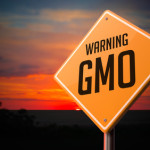Top 10 GMOs to avoid and why.
 Genetically modified organisms, also known as GMOs, are specially designed (or altered) species which have been genetically modified using genetic engineering for various outcomes, either to produce food of different taste, remove imperfections or to increase the produce. Nowadays, GMOs have become increasingly popular, especially in the US, and are now in use to produce a very large amount of consumable items. However, most of us do not realize the risks that GMOs carry along, which cause dire consequences to health of humans, the environment and the species itself. Many negative effects of GMOs are extremely harmful, some of which are listed below.
Genetically modified organisms, also known as GMOs, are specially designed (or altered) species which have been genetically modified using genetic engineering for various outcomes, either to produce food of different taste, remove imperfections or to increase the produce. Nowadays, GMOs have become increasingly popular, especially in the US, and are now in use to produce a very large amount of consumable items. However, most of us do not realize the risks that GMOs carry along, which cause dire consequences to health of humans, the environment and the species itself. Many negative effects of GMOs are extremely harmful, some of which are listed below.
Corn
One of the most dangerously produced GMO food (particularly in the US) is corn. It is known that over half of the corn produce is usually by the use of genetically modified seeds. Most of this produce is consumed by humans, and many have been linked with different disorders such as health problems, unusual weight gain/loss and organ distortion. In a recent experiment, mice were fed the genetically produced corn, and results indicated that the reproduction rate of these lab subjects had decreased significantly. So unless it is labeled organic, it is much safer to avoid consumption of corn.
Aspartame
Aspartame is a dangerously produced additive that has been known to cause neurotoxicity, a condition which causes brain damage, memory loss, fatigue, depression and other harmful effects. Aspartame works by breaking down during digestion into methanol and phenylalanine. The methanol is further converted into a form of aldehyde, which is toxic in nature, and is absorbed into the blood stream. Aspartame is also known to have played a role in leukemia, and so is extremely dangerous to consume.
condition which causes brain damage, memory loss, fatigue, depression and other harmful effects. Aspartame works by breaking down during digestion into methanol and phenylalanine. The methanol is further converted into a form of aldehyde, which is toxic in nature, and is absorbed into the blood stream. Aspartame is also known to have played a role in leukemia, and so is extremely dangerous to consume.
Soy
Soy is used daily by millions of people around the world, in the form of soybean oil, flour, vegan products and various other products. The reason why soy was modified was its ability to resist effects of herbicides. However, lab experiments resulted in shocking results, as subjects showed zero reproduction and a dangerous increase in mortality. A known product, soy lecithin, is produced from waste of soy oil, and has been known to cause many health problems.
Rice
One of the most popular products in Asia, rice has been linked as one of the most consumed foods in the world. In order to increase produce for the highly increasing demand, in South East Asia, rice is now being genetically modified. Doing so does not only give a greater produce, but also produces a larger amount of vitamin A. Some rice have been known to even contain human genes, and would be a treatment for diarrhea. However, a Chinese journal reported that genetically modifying the rice imposes serious health risks to all consumers, as it may cause harmful allergic reactions upon consumption.
Tomatoes
 Commonly used in every household, tomatoes are one of the most vital produce. In order to protect tomatoes from rotting, their shelf life is increased by genetically modifying their DNA. However, increasing their shelf life resulted in a reduction in the antioxidants within the tomatoes, as compared to the ones organically produced. The true harm of these tomatoes was not evident until a lab experiment was conducted where the subjects died a few weeks after the consumption of the genetically modified food.
Commonly used in every household, tomatoes are one of the most vital produce. In order to protect tomatoes from rotting, their shelf life is increased by genetically modifying their DNA. However, increasing their shelf life resulted in a reduction in the antioxidants within the tomatoes, as compared to the ones organically produced. The true harm of these tomatoes was not evident until a lab experiment was conducted where the subjects died a few weeks after the consumption of the genetically modified food.
Dairy
In order to increase milk production, many cows are known to have been treated with a special growth hormone called rbGh. Results showed that the produce of milk increased by a significant 15 percent. However, the nutritional value decreased, as now the healthy fatty acids in the milk had decreased, and the possibility of traces of blood and pus being contained in the milk increased significantly. The milk produced by the cows also contained a special type of insulin, which if consumed in excess amounts, may cause colon and breast cancer.
Vegetable oil
Vegetable oils are very common in household consumption, and many of them are produced from genetically modified soybean, or canola. They may contain the same harmful effects as soybean products. Canola has already been linked as a toxic plant, and genetically modifying it for production of vegetable oils only makes the case worse.
Papaya
Papaya has been known to have the ringspot virus, a condition that makes the papaya non-consumable. The virus had spread rapidly during the 1990’s, so to tackle the situation, scientists altered the DNA of the papaya to produce ringspot resistant papayas in Hawaii. The experiment was a success, but the papayas now offered little or no nutrition.
Cotton
Cotton is usually used for producing clothing, and hence its consumption may not be evident to most people. However, the oil produced from cotton is a vital ingredient in production of vegetable oil. Genetically altering the cotton to reduce pesticides caused a unique negative effect, as the mutated cotton could not even be touched, let alone consumed. This was evident when many farmers developed unusual rashes when exposed to the genetically modified cotton.
to most people. However, the oil produced from cotton is a vital ingredient in production of vegetable oil. Genetically altering the cotton to reduce pesticides caused a unique negative effect, as the mutated cotton could not even be touched, let alone consumed. This was evident when many farmers developed unusual rashes when exposed to the genetically modified cotton.
Peas
Peas have been genetically modified by inserting the genes of the kidney beans within the seeds. This resulted in a pesticide being produced, which has been causing problems to the immune system of mice, as well as humans who consume the genetically modified produce.
Usage of GMOs to alter the products may have resulted in greater produce or provided resistance from certain viruses or herbicides, but in turn has caused massive side effects, many of which are extremely dangerous. Nowadays it is very common for the GMO produced foods to be available in the market, so it is important that one must be aware of the health risks involved. During purchase, one must always choose the organic product, as it is much safer. Doing so would not only reduce the health risks, but would also contribute to removing GMOs from the market.
Johanna Oosterwijk ND